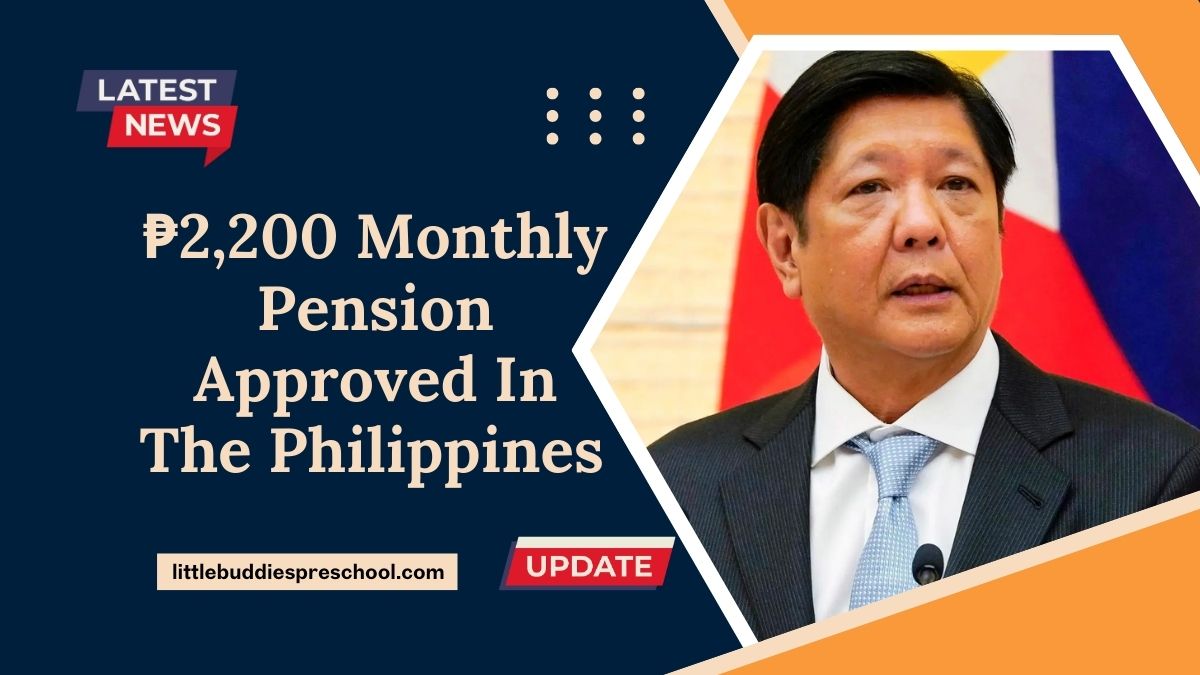In a significant move to support the elderly and vulnerable citizens, the Philippine government has officially approved a ₱2,200 monthly pension for qualified individuals.
This enhancement in monthly pension benefits aims to provide consistent financial relief, especially to those who rely on government aid during their retirement or due to incapacity to work.
The monthly pension is managed under two main programs: the Social Security System (SSS) for private-sector employees and the Government Service Insurance System (GSIS) for government workers. This article outlines who qualifies, how to apply, and when to expect payments.
Who is Eligible for the ₱2,200 Monthly Pension?
The ₱2,200 monthly pension is available to retirees, persons with disabilities, and legal dependents who meet specific requirements set by either the SSS or GSIS. Here’s a breakdown:
Eligibility Criteria for SSS Members
- Must be 60 years old or older
- Must have at least 120 monthly contributions
- Must be retired or permanently disabled
- Survivors (spouse, minor children) of deceased members may also qualify
Eligibility Criteria for GSIS Members
- Must be 60 years old or above
- Should have rendered at least 15 years of government service
- Must be officially retired or disabled
- Beneficiaries of deceased government workers may also receive survivor’s pension
Application Process for Pension
Both SSS and GSIS have made their pension application process more accessible. Below is a step-by-step guide on how to apply.
For SSS Pensioners
- Register or verify your SSS membership number
- Fill out the retirement or disability claim form
- Submit supporting documents such as valid ID, birth certificate, and contribution records
- Await application review and verification
- Approved applicants will receive monthly pension through bank deposit or SSS-issued card
For GSIS Pensioners
- Confirm GSIS membership and account details
- Submit the Application for Retirement/Disability Benefits
- Provide required documents: service record, valid ID, proof of retirement, etc.
- Wait for validation and approval
- Pension is credited to the member’s bank account or GSIS eCard
Payment Schedule and Disbursement Details
Monthly pension payments are made on fixed schedules depending on the agency. Below is a detailed table:
| Pension Provider | Monthly Amount | Payment Date | Mode of Payment |
|---|---|---|---|
| SSS | ₱2,200 | 10th or 15th of each month | Bank deposit / SSS Card |
| GSIS | ₱2,200 | On or around the 8th monthly | Bank deposit / GSIS eCard |
Note: Payment dates may shift slightly due to weekends or national holidays.
Key Benefits of the ₱2,200 Pension
- Steady Monthly Income: Offers financial stability to senior citizens and persons with disabilities
- Automated Disbursement: Direct bank deposits ensure convenience and security
- Support for Survivors: Ensures that qualified dependents are also taken care of after the death of the main pensioner
The launch of the ₱2,200 monthly pension in the Philippines is a crucial development in social welfare aimed at providing dignity and financial relief to millions of Filipinos.
Whether you’re a retired private employee or a former government worker, this pension ensures you get the support you’ve earned.
By meeting the eligibility criteria and following the simple application process, qualified individuals can start receiving their monthly benefits seamlessly.
This initiative not only strengthens financial security but also underscores the government’s commitment to supporting its aging and vulnerable population.
FAQs
Can I receive both SSS and GSIS pensions if I worked in both sectors?
Yes, but only if you contributed separately to both systems and met their individual eligibility requirements. You must apply for each separately.
Will the ₱2,200 pension be automatically credited to my account?
Once your application is approved, the monthly amount will be credited automatically each month without the need for repeated requests.
What happens if I miss my payment or don’t receive it on time?
If you don’t receive your pension as scheduled, contact the nearest SSS or GSIS branch or their helpline. Payment issues are usually resolved quickly if reported.

